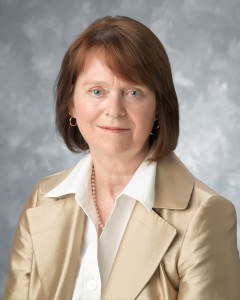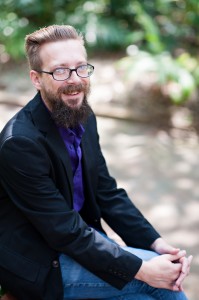UF awarded $10M to personalize online math learning
The UF College of Education is assembling top faculty researchers from multiple fields to seek solutions in two critical areas of 21st century education – personalizing online math instruction and adapting educational technology for students with visual impairments.
The studies are funded by two grants, worth more than $10 million combined, from the Institute of Education Sciences, the research arm of the U.S. Department of Education.
Massive data mining for personalized learning
Nearly $9 million of the grant money supports a new project called Precision Education: Virtual Learning Lab, which bring together top experts in informatics, math education and professional development for teachers. Their charge is to advance a new approach for exploring massive sets of student data to update and personalize virtual instruction for math students.

Carole Beal
“With the increased use of computers in education, the large-scale mining of existing education data represents a big new opportunity for computers to help teachers adapt their practice for today’s digltal world and help their students to improve their virtual learning,” said UF education technology Professor Carole R. Beal, the principal investigator of both studies.
The new Virtual Learning Lab comprises faculty researchers at UF and the University of Notre Dame, and experts from Study Edge, a Gainesville-based online tutoring company.
Over the next five years, the researchers will conduct studies in the emerging discipline known as precision education, which uses education data from prior students—such as standardized test scores, personal traits, teaching methods used and school administrative records—to personalize the learning experience for future students.
No more one-size-fits-all lesson plans geared to some “statistically average” student profile.
The researchers will focus on online or virtual learners, relying on the hot, new education technology of “big data” learning analysis. Their approach has them using powerful “supercomputers” to rapidly scrutinize the massive education data, plus figures from students’ use of interactive or group learning tools.
“Our grand challenge is to improve the achievement of struggling online students,” said Beal, who was recruited from the University of Arizona in 2014 to head the new UF Online Learning Institute. “We will design new teacher development programs on the use of learning analytics and personalizing instruction, and how to track student progress when every student is doing something unique.”
Researchers at the Virtual Learning Lab will develop and test their personalized model of precision education on a popular online tutoring tool called Algebra Nation, which the UF Lastinger Center for Learning launched in 2013 in tandem with Study Edge. Algebra Nation has since been used by more than 3,000 teachers and 200,000 math students from all 67 Florida school districts—mostly ninth graders gearing up for the mandatory end-of-course exam in algebra 1.
The researchers delight at the wealth of revealing learning data the Algebra Nation students and program are generating. Near the end of the study, researchers will compare test results of students using the updated and personalized version of Algebra Nation with the scores of students who used the regular version.
Beal said the Virtual Learning Lab also will serve as a national hub for researchers nationwide—forming a network for sharing findings and collaborating on new efforts to advance the fledgling field of virtual precision education and personalized learning.
“Our findings in the Virtual Learning Lab project will serve as a national model for a new approach to developing online learning systems,” she said.
The project’s co-principal investigator is Walter Leite, UF professor of research and evaluation methodologies (REM) with expertise in big-data mining and learning analysis. Other College of Education faculty researchers involved are: Corrine Huggins-Manley (REM), and Don Pemberton and Philip Poekert from the college’s Lastinger Center for Learning.
Two other participating UF faculty scholars are: George Michailidis, director of the UF Informatics Institute; and Juan Gilbert, chairman of computer and information sciences and engineering, and a pioneer in the field of human-centered computing.
Other key team members are psychology and computer science professor Sidney D’Mello of the University of Notre Dame and online tutoring specialist Ethan Fieldman of Study Edge.
Helping students with sight impairments solve online math problems with graphics
The theme of personalized online learning carries over to Beal’s second federal grant, a three-year, $1.4 million project to help solve the unique challenges that blind and visually impaired students must overcome in learning online.
Think about it: How can students who can’t see the images on their computer screen solve algebra or geometry problems filled with line, bar and circle graphs, figures, geometric shapes and maps?
Beal sought solutions to help these students for several years while at Arizona, and she is expanding her studies now with her new UF colleagues. She said one of her ongoing research interests is to explore how technology can make online learning more accessible to students with special needs.
“In my investigations, I have found that students who appear disengaged in the traditional classroom are often among the most active learners in the online learning setting,” she said.

Nicholas Gage
Beal has assembled a research team with colleagues from both Arizona and Florida to explore how technology can make online learning more accessible to students with special needs. They are Nicholas Gage from UF’s special education program as co-principal investigator, and, from Arizona, Sunggye Hong and L. Penny Rosenblum, both education researchers in disability and psycho-educational studies.
The researchers will develop and test an iPad-based instructional system to train students with visual impairments to locate and decipher targeted information in math graphics problems. The system includes audio, print and braille cues in accompanying books to point users to targeted graphics and word problems.
Beal said they plan to recruit up to 150 middle and high school students with visual impairments for the project from regular schools and specialized residential programs in Florida, Arizona and other states.
“Some of our students will be from regular schools and receiving special education services, while others attend specialized residential programs such as the Florida School for the Deaf and Blind in St. Augustine,” Beal said.
Dean Glenn Good of the UF College of Education called the federal grants awarded to Beal’s research teams “a major accomplishment in light of how extremely competitive it is to win major awards in education research.”
“The big winners from these projects,” Good said, “will be the struggling students who will benefit from the enhanced learning tools and teaching strategies that will help them succeed in their technology-based learning activities.”
SOURCE: Carole R. Beal, 352-273-4178; crbeal@coe.ufl.edu
WRITER: Larry Lansford, communications director, UF College of Education; 352-273-4137; llansford@coe.ufl.edu




